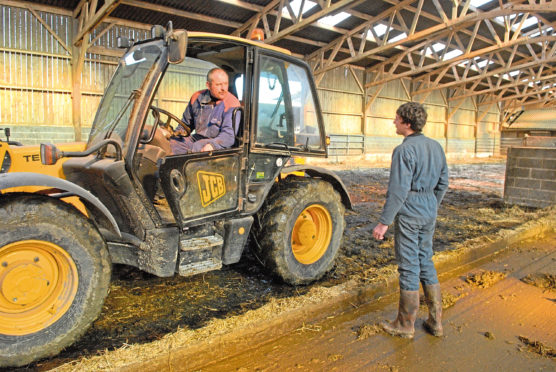Farmers and crofters who are considering taking on an employee in the next few weeks are being urged to apply for an Apprenticeship Employer Grant (AEG).
The fund, which is worth up to £5,000 to an employer, is open until March 25, and the grant is open to all sectors.
The farmers’ union’s (NFUS) skills development manager, George Jamieson, said for those who have been swithering about taking on an apprentice, a grant could be the incentive they need to help someone secure a future in the industry.
“The farming sector has been slow to warm to the apprenticeship model, but NFUS is working closely with providers and schools to raise the ambition and profile of the modern apprenticeship model and we encourage farmers to learn more and consider the potential to existing staff of new staff,” he said.
Meanwhile, recruitment of young aspiring farmers for Scotland’s 2021 land-based pre-apprenticeship programme has begun.
Scotland’s machinery rings are aiming to attract up to 60 new entrants this year after the programme supported 45 young people through the challenges of the pandemic in 2020.
Since the scheme started around half the participants have been from non-agricultural backgrounds, many of whom have gone on to do modern apprenticeships or college courses.
Laurencekirk farmer Andrew Moir, vice-chairman of the Scottish Machinery Rings Association (SMRA), said he was encouraged by the Scottish Government’s pledge of skills development support for young people, displaced workers and career changers.
“The Scottish machinery rings can assist with these new initiatives,” he said.
“Supporting various industry sectors such as construction, haulage, forestry, agriculture, horticulture, estates and public authorities means the SMRA is well placed to provide training to a wide range of businesses and indeed to those individuals considering a career change or simply looking to enhance their skill set for the future.”
The first part of the pre-apprenticeship programme includes tuition on tractor driving, rough terrain telescopic forklift, first-aid, manual handling, health and safety risk assessments and undertaking the Certificate of Work Readiness qualification.
It is followed by six months full-time employment with a rural mentor which allows the pre-apprentice to develop their skills and gain work experience.
